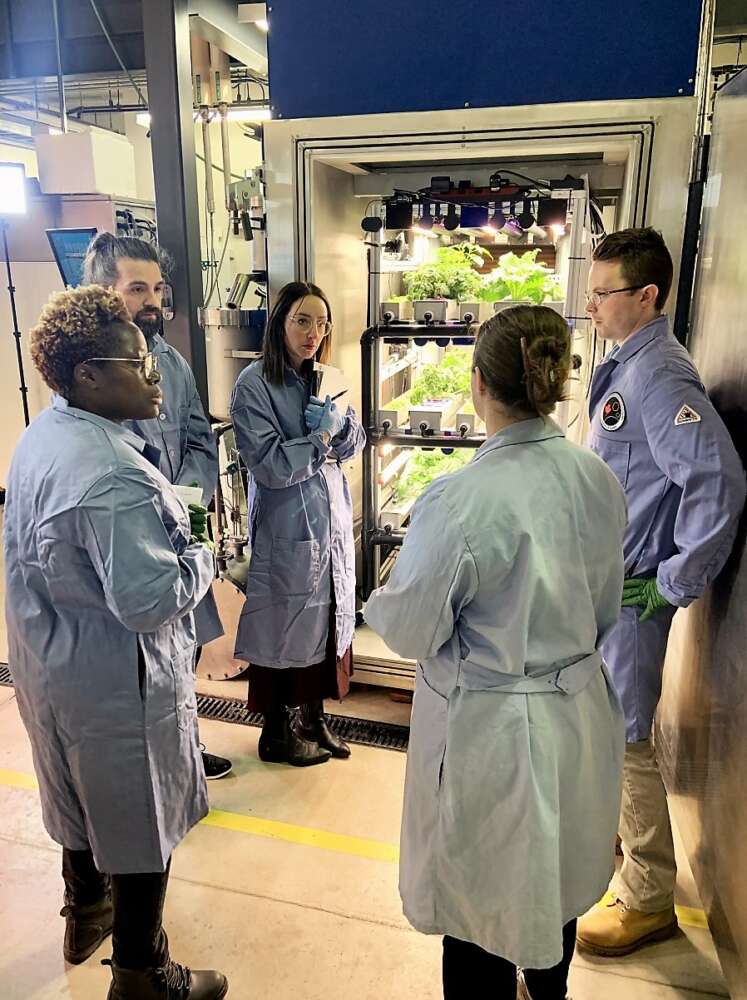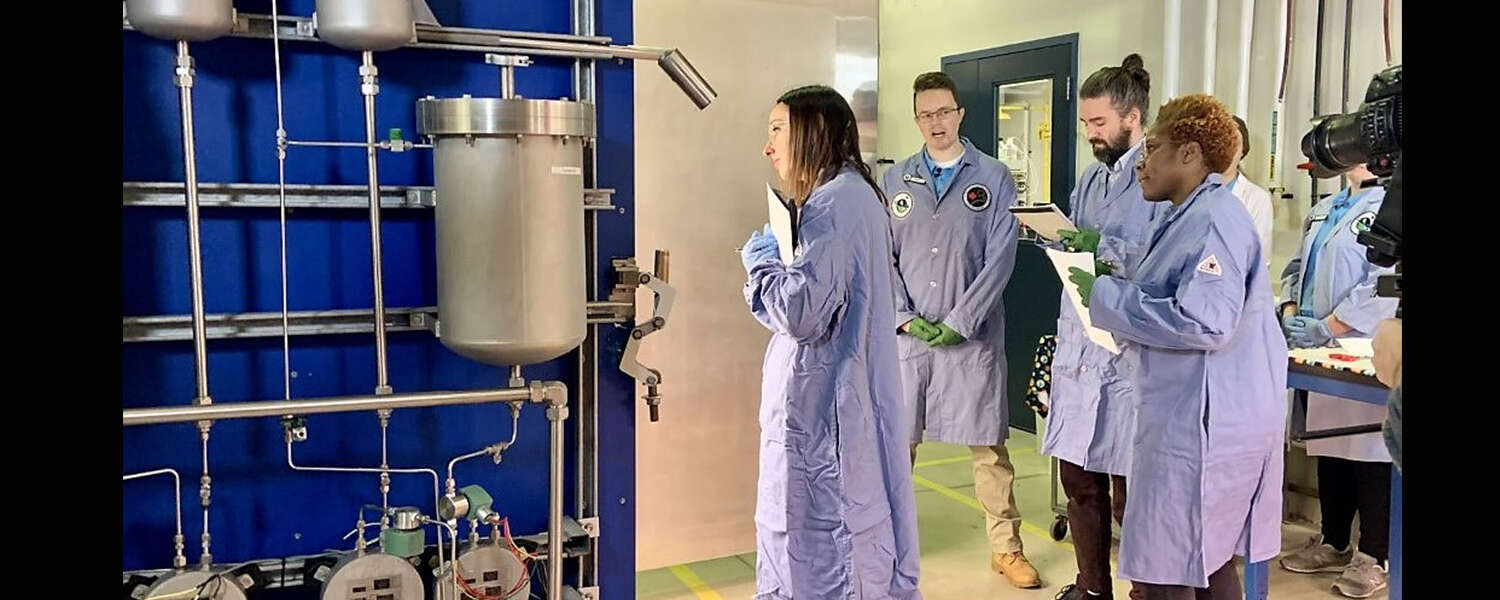The challenge continues for a team of University of Guelph student scientists working on ways to grow food in space, as they have just been selected to advance to Phase 3 of the Canadian Space Agency’s (CSA) Deep Space Food Challenge.

Dubbed Canada GOOSE (Growth Options for Outer Space Environments), the team is one of four finalists that will compete in the final stage of the multi-year contest. The others are from Concordia University, McGill University and Ecoation Innovative Solutions Inc.
Presented with $100,000 as a finalist, the Canada GOOSE team will now scale up the prototype of their unique plant-growth chamber, which can grow vegetables, fruits and mushrooms without soil, sunlight or fresh water.
All the technology in the GOOSE project is built on nearly three decades of research that have made U of G a world leader in controlled environment agricultural technology.
The Canadian Space Agency launched the Deep Space Food Challenge in 2021 in partnership with Impact Canada to encourage new technologies to produce food for both future space missions and harsh or remote environments on Earth.
A similar challenge is under way in the U.S. with support from NASA.
Several teams applied for the Canadian challenge, and Canada GOOSE was one of 10 selected last year to move to Phase 2 and present their prototypes to judges from the CSA.
That presentation took place in January with student team members from the School of Environmental Sciences along with senior research staff and Dr. Mike Dixon, retired environmental sciences professor and director of U of G’s Controlled Environment Systems Research Facility (CESRF).
“We are definitely stoked for the next phase of the challenge,” said Dixon. “The U of G team has added some more depth with engineering specialists and mushroom expertise from local entrepreneurs that will make us an unbeatable option in the final round.”
The team now has 12 months to build out a full-scale food production system and prepare to demonstrate to the jury that the GOOSE system can produce both nutritious and palatable food over the long term.
The winner will be announced in spring 2024 and will receive a grand prize of $380,000.
